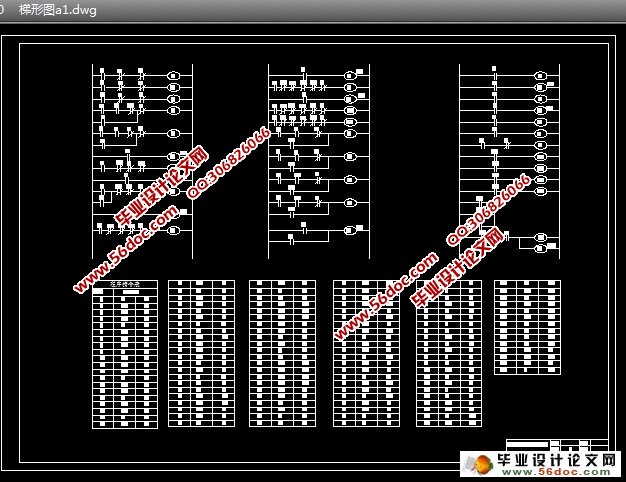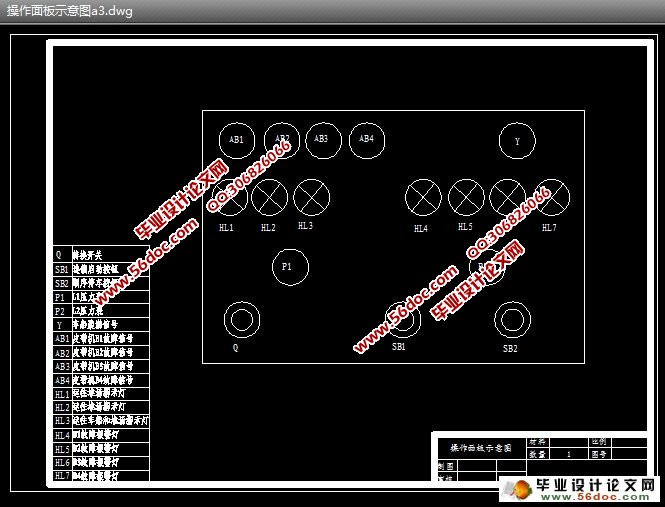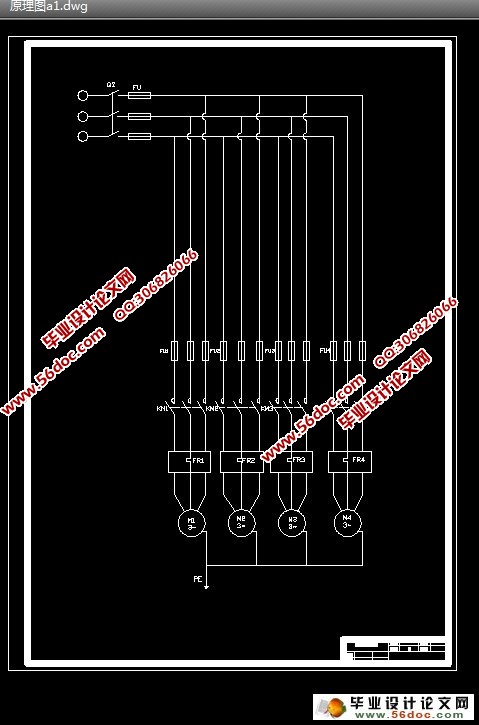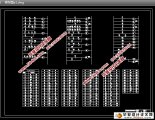汽车进排气的瞬时运动分析(开题报告,设计说明书22000字,CAD图纸6张)
摘 要
配气机构作为内燃机的重要组成部分,其设计合理与否直接关系到内燃机的动力性能、经济性能、排放性能及工作的可靠性、耐久性。随着内燃机高功率、高速化,人们对其性能指标的要求越来越高,要求其在高速运行的条件下仍然能够平稳、可靠地工作,因而对其配气机构提出了更高的要求。配气凸轮型线是配气机构的核心部分,配气凸轮型线设计是配气机构优化设计的重要途径之一。模拟计算和实验研究是内燃机配气机构研究两种重要手段。本文对配气机构给零件形状、尺寸进行了设计,并且应用pro-engineer进行了实体建模,得到了配气机构的三维装配图。再将配气机构模型导入ADAMS软件进行约束的建立以及驱动的添加,使得配气机构能够在ADAMS软件中进行仿真,从而得到各种数据曲线对整个机构的性能进行分析,根据各种数据分析得到配气机构的最优设计。
关键词:内燃机;配气机构;虚拟样机技术;建模;仿真
ABSTRACT
The valve train is one of the most important mechanisms in a internal combustion engine, whether the performances are good or bad, that affecting the power performance, economic performance, emissions performance of the engine, as well as affecting the reliability and wear performances of the whole engine. Along with the requests of the engine’s high power, super-speed, people demand a higher index. That is, when the engine runs under a high speed, it can still work steadily and dependably, which demand that the valve train system should have a high performance. Cam profile is the hard core of the valve train, which design is one of the important ways to carry out valve train optimal design. Simulation calculation and experimentation research are two important ways to carry out research and development on valve train of internal-combustion engine. This thesis devise the parts shape and dimension for the valve train, obtain the 3D assembly diagram base on model entities by pro-engineer. Importing the valve train to ADAMS software, then creating the constraints and adding drives. Sequentially, analyze the whole organization performance, after get the various data curve from valve train be capable simulation in ADAMS software. Finally, obtain the optimum design of valve train according to various data analysis.
Key words: Internal combustion engine; Valve train VPT; Virtual prototyping technology; Modeling; Simulation




目 录
摘要…………………………………………………………………………………Ⅰ
Abstract …………………………………………………………………………………Ⅱ
第1章 绪论………………………………………………………………………………1
1.1 课题研究的目的和意义…………………………………………………………1
1.1.1 设计的目的……………………………………………………………… 1
1.1.2 设计的意义……………………………………………………………… 1
1.2 柴油机配气机构现状……………………………………………………………1
1.3 设计内容…………………………………………………………………………2
1.4 用计算机辅助配气机构设计分析………………………………………………3
1.5本文研究内容………………………………………………………………………3
第2章 配气机构零部件设计…………………………………………………5
2.1气门………………………………………………………………………………5
2.1.1 气门设计的基本要求…………………………………………………… 5
2.1.2气门的工作条件分析及材料的选择…………………………………… 5
2.1.3 气门头的设计…………………………………………………………… 6
2.1.4气门杆的设计…………………………………………………………… 7
2.1.5 气门的主要损坏形式和预防措施……………………………………… 8
2.2气门弹簧的设计……………………………………………………………………9
2.2.1 气门弹簧的设计要求…………………………………………………… 9
2.2.2弹簧介绍………………………………………………………………… 9
2.2.3 气门弹簧的有关计算……………………………………………………11
2.3摇臂的设计………………………………………………………………………13
2.3.1 摇臂的工作原理…………………………………………………………13
2.3.2摇臂与气门杆顶面间接触应力的计算………………………………14
2.4推杆的设计………………………………………………………………………14
2.4.1 推杆的功能结构形式……………………………………………………14
2.4.2尺寸设计…………………………………………………………………14
2.5 挺柱的设计……………………………………………………………………16
2.5.1 挺柱的结构………………………………………………………………16
2.5.2平面挺柱导向面与导向孔之间的挤压应力的计算……………………16
2.5.3 平面挺柱的最大速度……………………………………………………16
2.5.4凸轮与挺柱间接触应力的计算…………………………………………17
2.6凸轮的设计………………………………………………………………………18
2.7 凸轮轴的设计…………………………………………………………………19
2.7.1 凸轮轴基本要求…………………………………………………………19
2.7.2凸轮轴计算………………………………………………………………20
2.8本章小结………………………………………………………………………21
第3章Pro-engineer和Adams软件理论基础……………………………………23
3.1虚拟样机技术介绍……………………………………………………………23
3.2虚拟样机强有力的工具…………………………………………………………24
3.3 用Proe和Adams开发虚拟样机的主要流程…………………………………24
3.4 多体动力学………………………………………………………………………25
3.5本章小结…………………………………………………………………………28
第4章 建模与仿真…………………………………………………………………29
4.1 Proe实体建模……………………………………………………………………29
4.2建立Proe装配图…………………………………………………………………32
4.3将装配图导入Adams……………………………………………………………34
4.4配气机构多体动力学仿真结果及分析…………………………………………35
4.5本章小结…………………………………………………………………………42
结论………………………………………………………………………………………43
参考文献 ………………………………………………………………………………44
致谢………………………………………………………………………………………46
|









